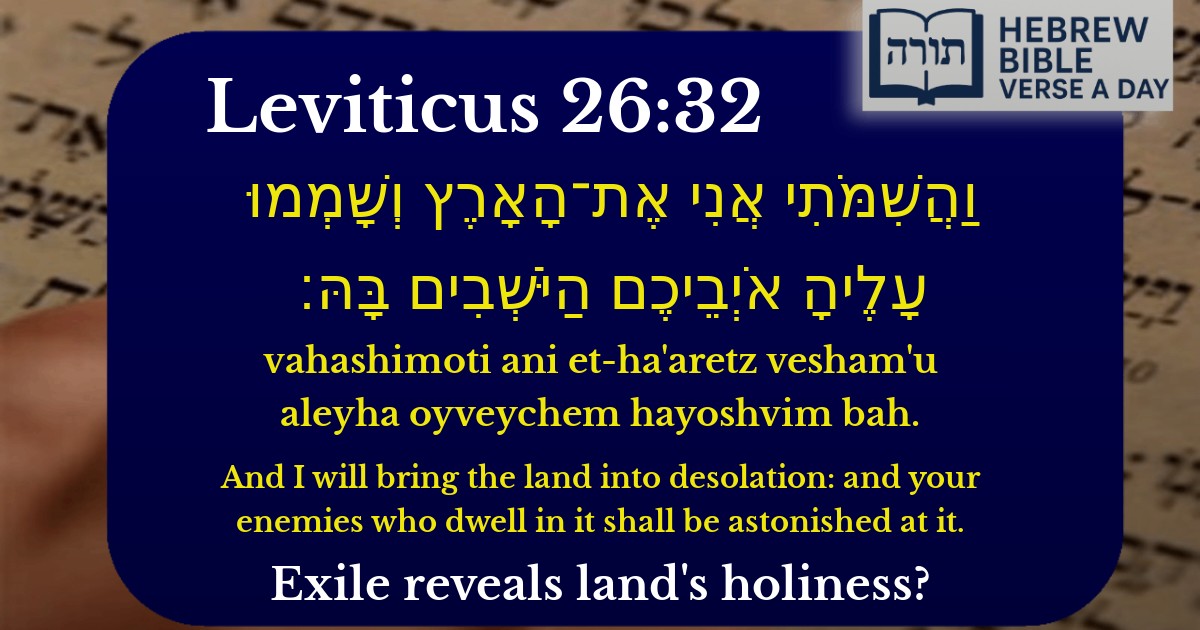Join Our Newsletter To Be Informed When New Videos Are Posted
Join the thousands of fellow Studends who rely on our videos to learn how to read the bible in Hebrew for free!
Hebrew Text
וַהֲשִׁמֹּתִי אֲנִי אֶת־הָאָרֶץ וְשָׁמְמוּ עָלֶיהָ אֹיְבֵיכֶם הַיֹּשְׁבִים בָּהּ׃
English Translation
And I will bring the land into desolation: and your enemies who dwell in it shall be astonished at it.
Transliteration
Vahashimoti ani et-ha'aretz vesham'u aleyha oyveychem hayoshvim bah.
Hebrew Leining Text
וַהֲשִׁמֹּתִ֥י אֲנִ֖י אֶת־הָאָ֑רֶץ וְשָֽׁמְמ֤וּ עָלֶ֙יהָ֙ אֹֽיְבֵיכֶ֔ם הַיֹּשְׁבִ֖ים בָּֽהּ׃
וַהֲשִׁמֹּתִ֥י אֲנִ֖י אֶת־הָאָ֑רֶץ וְשָֽׁמְמ֤וּ עָלֶ֙יהָ֙ אֹֽיְבֵיכֶ֔ם הַיֹּשְׁבִ֖ים בָּֽהּ׃
🎵 Listen to leining
Parasha Commentary
📚 Talmud Citations
This verse is quoted in the Talmud.
📖 Megillah 11a
The verse is referenced in the context of discussing the desolation of the land and the astonishment of the enemies dwelling in it, as part of a broader discussion on divine retribution and the consequences of Israel's actions.


Context in the Torah
The verse (Vayikra 26:32) appears in the Tochacha (Rebuke), a section of severe warnings for failing to observe the mitzvos. Rashi explains that this desolation is a consequence of Israel's sins, emphasizing that even when the Jewish people are exiled, the land will not accept their enemies, remaining barren as a sign of its connection to Bnei Yisrael.
Desolation as Divine Judgment
The Ramban (Nachmanides) elaborates that the land's desolation serves two purposes:
The Land's Loyalty to Israel
The Midrash (Vayikra Rabbah 36:1) compares Eretz Yisrael to a faithful wife who refuses to produce bounty for another "husband" (foreign nations). The Talmud (Ketubot 112b) states that even when enemies settle there, the land "vomits them out" spiritually through its desolation, echoing the verse's imagery.
Eschatological Promise
Malbim interprets this as a hidden comfort: the very desolation guarantees eventual redemption, as the land awaits its rightful children. This aligns with the later prophecy (Vayikra 26:44) of ultimate return, showing that desolation is temporary but covenantal love eternal.